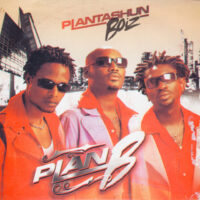The history of music in Lagos, Nigeria: 1980s to the 2000s
Editor’s note: First published on Yaba Left, this post is republished here with permission. Read the first part of this post here.
Nigeria’s political climate in the 80s was rather turbulent with a succession of coup d’états. The country was not faring well economically. The security situation dealt a heavier blow on the nightlife economy. In fact, at a time, night parties were all but abolished due to the rising spate of crime. The music scene became less and less vibrant with a good number of recording companies and their distribution networks folding up. Once live music was decimated, digital music thrived, albeit feebly.
The 80 and 90s saw the rise of digital music, the proliferation of reggae music, as well as the birth of Nigerian hip-hop music. This era brought a bevy of stars like Dizzy K, Junior and Pretty, Ras Kimono, Christy Essien-Igbokwe, Charlie Boy, Daniel Wilson, Zubby Enebeli, Alex Zito, Blackky, and Evi Edna-Ogholi. But none of these musicians was as successful as the reggae super-star, Majek Fashek, who later migrated to America in the ‘90s and consolidated his phenomenal success in the Diaspora.
The ‘90s is remembered for its quiet mostly. Most narratives around nightlife speak of underground music. In Lagos, there was the now defunct Nightshift Coliseum in Ikeja where Lagbaja led his band in a fusion that was equal parts highlife and afrobeat. His deployment of the bata drums was a unique innovation that often occasioned frequent drum intermissions that potentially distracted his scant socio-political message.
The 1990s, the era of music collectives
The Abacha days (1993-1998) were particularly heady. General Sani Abacha, Nigeria’s military dictator, was known for arbitrary authority and numerous human rights violations. This period of political as well as economic turmoil had the most devastating effect on cultural production. Cultural producers were being sanctioned for their works. Reputable writers like Wole Soyinka were hunted for their scathing remarks and criticisms of the repressive government. In 1995, writer and activist Ken Saro-Wiwa was murdered for championing the cause of the Niger Delta. Two years later, singer and activist Fela Anikulapo-Kuti, feeble with sickness, would die from AIDS complications but not before he was rough-handled by agents of the government who targeted his cannabis use.

Plantashun Boiz was a Nigerian hiphop and R&B music group, consisting of 2face Idibia (born as Innocent Ujah Idibia), Faze (born as Chibuzor Oji) and Blackface (born as Ahmedu Augustine Obiabo).
It was not until Abacha’s death and return to democracy that cultural production began to thrive again. A new wave of music began to gain ground on the radio. Young and enthusiastic Nigerian creatives began to spew a new kind of music heavily influenced by American rap and hip-hop music popular on the radio. At this time, these musicians converged into collectives and boy bands.
There was the Remedies trio comprising of Eedris Abdulkareem, a rapper, and two singers, Tony Tetuila and Tony Montana, whose breakout song ‘Mi o sako mo’ sampled MC Lyte’s ‘Keep on Keeping on’ and became the sound that heralded that new era. Other boy bands from this era include Boulevard, Def-O-Clan, Twinax, Trybesmen, 419 squad, and Plantashun Boys. There were the occasional female musicians like Queen Change, Azeezat, and Funmi Olayode, who transposed a popular Celine Dion hit into Yoruba.
The 2000s, return of contemporary Nigerian music

Studio album by 2face Idibia
The year 2004 marked the beginning of another era in contemporary Nigerian music. It was the period that the boy bands began to split up. This era de-emphasized collaborative efforts and focused more on the individual. Championing this era was Tuface’s seminal album, ‘Face to Face,’ released by a pioneer record label at the time, Kennis Music, owned by two media moguls, Kehinde Ogungbe and Dayo Adeneye. The likes of Timaya, Face, D’Banj, El Dee, Don Jazzy, K-Solo, 9ice, Mo Cheddah became popular in the years that followed.

MI (Jude Lemfani) Abaga, Nigerian rapper at an event on August 18, 2014. Image by Ameyaw Debrah via Wikimedia Commons. (CC BY-SA 3.0)
Rap music was an aspect of Nigerian contemporary popular culture but it enjoyed the back burner. It was a niche market enjoying a cult following. Rappers like Mode Nine, Freestyle, OD, Ruggedman, Mickey The Messenger, White Mask, and 2Shot did occasionally cross to the mainstream with an occasional single but this was not the norm.
In 2008, a squad of creatives from Jos arrived in Lagos. It was this wave that brought MI Abaga, Jesse Jagz, Ice Prince, and the rest of his Loopy crew to our consciousness. MI Abaga would later release two LP albums and two mixtapes which rearranged the zeitgeist to rap on the front burner. On his first album, Let’s Talk About It, he featured a singer on ‘Fast Money, Fast Cars’ called Wizkid, who signed to Banky W’s EME record label. At this same time, 9ice will release his sophomore album, Gongo Aso, a classic with an eponymous monster hit to boot. His brand of music which fused fuji with hip-hop quickly caught on. His collaboration with the pioneer of Yoruba rap, Lord of Ajasa, foreshadowed the next era of music.

Tiwa Savage. Studio portrait by TCD Photography via Wikimedia Commons, 4 February 2013, (CC BY-SA 3.0)
Also, Mo Hits Records, started by the duo of D’Banj and Don Jazzy who broke out of the London-based 419 squad, had a roster of impressive artists that included Wande Coal, Dr Sid, and D’Prince. This ensured a reign of hit after hit.
Contemporary Nigerian music, like its forebears, exists mostly for dance. There is the lean niche market for introspective, instrumentation-based alternative markets suited for cafes and cabarets, but in Lagos, nightclubs and lounges are the rule, not the exception.
And for the exceptions, places like Bature Brewery in Victoria Island, Freedom Park on Broad Street, 100 Hours on Awolowo Road and Stadium Hotel in Surulere provide good live music into the wee hours of a sleepless Lagos night.


